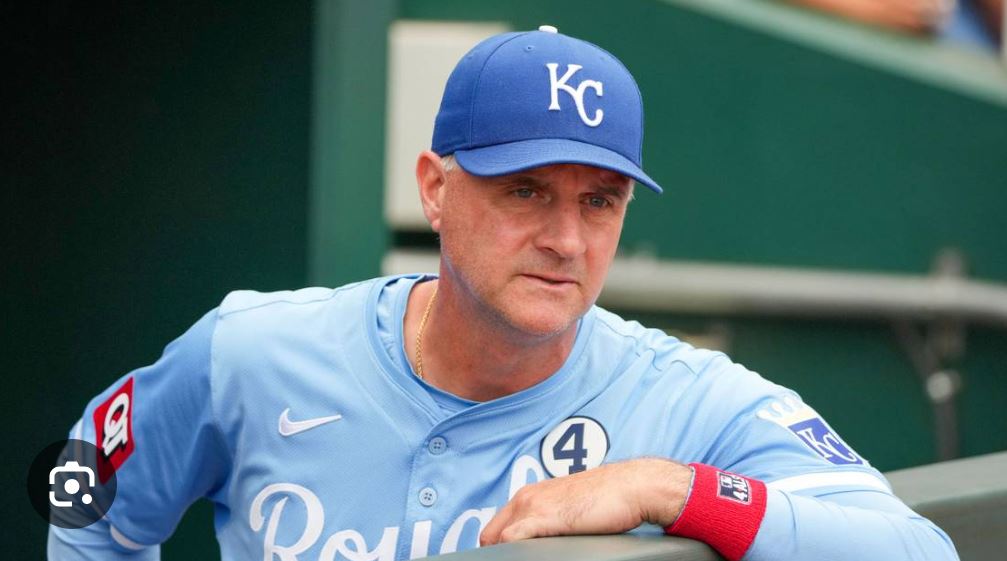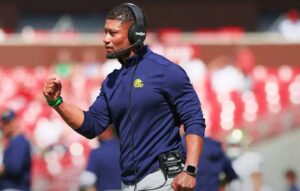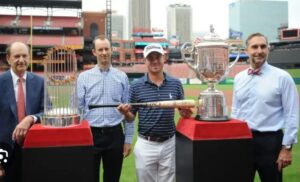
With 127 games remaining before the weekend, the 2024 Royals are about the most astonishing and compelling tale in baseball. With a 3-0 victory over the Angels on Wednesday night at Kauffman Stadium, they improved to 71-56, on pace to win more than 90 games after losing 106 the previous season.
No team in baseball history has won more than 87 games (and just twice) after losing over 100 the previous year. Even more dramatically, this comeback comes after losing an average of 100 games (99.6) during the previous five full seasons.
With a difficult and undoubtedly revealing stretch ahead, beginning with the Phillies on Friday night at Kauffman Stadium, this trend may or may not hold.
However, there are plenty reasons to embrace the stretch run and for the Royals to continue thinking “why not us?” — a phrase reliever Will Smith coined in spring training with a specific currency after having played for the last three World Series winning teams.
Some aspects of the turnaround are spectacularly obvious: the rise of Bobby Witt Jr.; the eternal flame of Sal Perez; a starting rotation transformed from an exasperating liability to an exhilarating asset; the emergence of RBI-machine Vinnie Pasquantino; and the seemingly critical acquisition of Lucas Erceg to shore up a volatile bullpen.
And then some for a squad that, on many occasions, has summoned critical contributions from all over a clubhouse that was dramatically reshaped by general manager J.J. Picollo (and John Sherman’s enhanced budget) in the offseason — and then smartly bolstered at the trade deadline.
Especially if the Royals make the playoffs for the first time since 2015, but even if not, Picollo is a deserving candidate for MLB executive of the year.
Far less overtly but equally important in this seismic shift has been manager Matt Quatraro’s uncannily steadying and nuanced performance, which should make him a favorite for the American League manager of the year award, which has only been conferred on a Royals manager once before: Tony Pena in 2003.
Never mind that the case for Picollo will be more visible and concrete than the one for Quatraro.
That’s the profile Quatraro prefers, as he’s more of a calming force than a scorching one (despite being ejected five times in two seasons), as well as a delegator and an instigator. And whose influence is based on a much-hyped data-driven approach, as well as a personal touch that understands that chemistry and culture are important.
However, he is so modest that he is unappreciated.
Especially since he cares about everyone else.
“I don’t think he wants any credit …” Picollo spoke lately. “But it’s hard not to notice what he’s doing.”
That goes much beyond the fine but overused adage (reminiscent of “Bull Durham” and “we’ve got to play them one day at a time”) that he professes: It’s all about “Today,” he’ll remind you, at every opportunity.
So, practically every opportunity.
“I mean, it’s not like I’m (in the clubhouse) walking around going ‘Today, Today, Today,'” Quatraro said, smiling, as he sat in the Royals’ dugout following his pre-game news conference Wednesday.
Heck, some days before games, Quatraro even wears a Sarah’s Soldiers T-shirt, recognizing the great Sarah Nauser’s fight against ALS, as a change of pace from his “Today” shirt.
(And, lest you worry if he has a whole closetful of the same, he only has one … that goes around and around the laundry loop as much as he loops back to it.)
But each of these todays is built on yesterdays, notably last season’s debacle, in which the first-year manager almost always presented a sense of calm.
It felt almost eerie at times.
In fact, I wondered if it would be beneficial for everyone — Quatraro, players, and fans — to see him yell, rant, or throw a chair after a game.
But he didn’t.
Even though the roster has altered drastically since then, it’s clear to discern a link between what that did for a young core grabbing and gasping and where it is now.
“He easily could have gotten rattled” and acted out of character, bench coach Paul Hoover stated. “But he was steady Eddie. Because of it, I believe he gained a lot of respect in that clubhouse.”
As difficult as it was to witness the club “getting our teeth kicked in” last season, pitching coach Brian Sweeney said, Quatraro exhibited his ability to look gloom in the face and remain resilient and process-driven while offering support… not to mention suggestions for what would be needed moving forward.
His nurturing personality is evident in his long-standing friendships with former teammates and coaches. Hoover marvels at Quatraro’s continuous relationships.
However, that trait also applies to staff and players who understand that his primary goal is to assist push the team ahead. They also understand that he’s there to listen and contribute rather than pontificate, and they like his self-deprecating sense of humor.
All led by the refreshing idea that being poised and true to yourself is a virtue, not a flaw, regardless of how others do it.

From the outside, it may not have seemed that inspiring last year while the staff and Picollo got to know each other and figured out what they had to work with.
But, as infuriating as that so-called season of evaluation was, it bred what we see now on a roster Picollo shaped more toward Quatraro’s emphasis on flexibility: a group whose connectivity is visible in the clubhouse and reflected in a team that relies on a number of role players who would rather be The Man.
Thanks to some shape-shifting by Quatraro and his team.
While there are differing opinions on how many games managers directly win or lose, they are also accountable for a tone and attitude that are vital to any squad.
“He’s the same guy every day, and that’s extremely important,” said Pasquantino, who has 95 RBIs, third in the AL.
He went on, “It allows us to know who we can be.”
Pitcher Brady Singer, who improved his ERA from 5.52 to 3.18 entering the weekend series against the Phillies, credited Quatraro’s unflappable demeanor (combined with Sweeney’s tutelage) for instilling faith… even when there appeared to be little reason to believe.
“He’s been a huge, huge part of this …” Singer stated. “He has kept us where we are.” “He’s kept us inside today.”
As subtle as it may be, taught through instructors he trusts to manage their respective sectors, it may appear to be an unseen hand.
However, it is a velvet touch that unites and activates individuals in Quatraro’s zone of influence. That is very much the spirit and temperament of an educator, as were both his parents and his wife, Christine.
When I interviewed Quatraro in early 2023, shortly after he started the job, we talked about how his parents were “super steady” and “consistent” and taught him “simple life lessons without telling you what to do or how to do it all the time.” Almost always present, without being invasive.
He also mentioned something surprising for a reportedly numbers-obsessed guy who, in part, got the position because of it: As much as he enjoyed math growing up, that pretty much came to a stop when a pre-calculus teacher informed him, “If you don’t know this by now, you’re dead in the water.”
That was one month into the school year.
As a result, his relationship with data has been injected with something new and distinct, as he explained the day he was appointed manager. Data “doesn’t make the decisions,” he remarked.
“It informs the decisions,” said the man, “and it creates more questions that you can ask that help you make better decisions down the road.”
All of this makes Quatraro what Sweeney calls “a really cool thinker” — and an important element of the Royals’ success, no matter how ethereal he makes it appear.







